Voices: Aspen Presidential Fellowship for Community College Excellence
April 23, 2018
By Mai P. Tran, ECMC Foundation
More than 80 percent of community college presidents across the country are predicted to retire over the next 10 years, opening opportunities for those aspiring to lead these institutions.
Taking on the new role as community college president, however, is no easy feat. Recognizing the need to provide support and prepare those who aspire to take on the challenge, the Aspen Institute runs a fellowship that provides the resources, tools and mentorship that prepares the next generation of college presidents.
A 10-month program, the Aspen Presidential Fellowship for Community College Excellence, extensively covers best practices that lead to student success outcomes, especially among low-income, minority and first-generation college students.
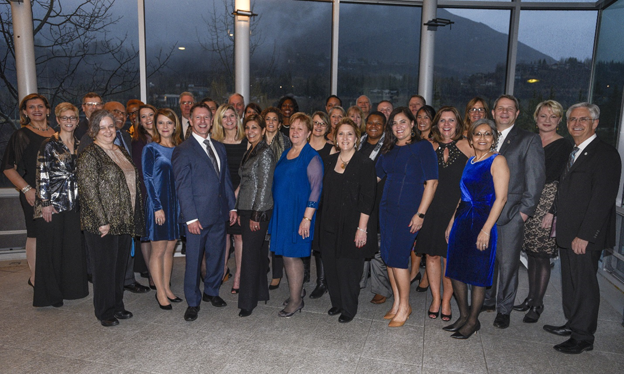
Forty members of Cohort 2 of the Aspen Presidential Fellowship for Community College Excellence
ECMC Foundation supported the fellowship's inaugural cohort last year and its second cohort, which concluded in earlier this month. We connected with fellows from both cohorts to ask them about their experience.
What advice do you have for aspiring community college presidents looking to join the Aspen Fellowship program?
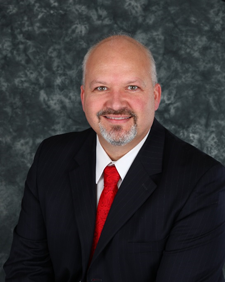
Jeff Cox, Ed.D.
Aspen Fellow Cohort 2
President, Wilkes Community College
Wilkesboro, NC
"I wish every aspiring community college president could participate in the Aspen Fellowship program. I joined the program as a new president whose background was in K-12 education. What I have learned through my involvement in this program has truly shaped my leadership vision and the work I am doing at Wilkes Community College. We are using the Aspen Framework for Community College Excellence as the cornerstone of our new strategic planning process for the college. As we work to make a significant impact on the economic mobility of the people in our service area, the principles contained within this framework have proven to be a perfect roadmap for our planning. From the first seminar at Stanford University, where we learned from some of the most brilliant thinkers in the higher education field and to the knowledge I've gained from the Aspen staff, my Aspen mentor and from the other fellows, I cannot easily quantify how impactful this program has been for me. I am no doubt a more effective president because of my participation in this program. I cannot wait to put what I have learned into action to see the positive impact on my small community in North Carolina."
How did the fellowship help prepare you for becoming a community college president?
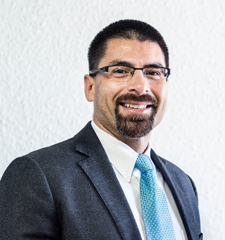
Michael Gutierrez, Ed.D.
Aspen Fellow Cohort 1
President, Sacramento City College
Sacramento, CA
"Ready or not, the first day we sit on the president's chair is when everyone sees us as the leader of the college. Nobody cares if we moved from another state. Nobody cares if we need a few days to adjust. Nobody cares that we barely know how to get to work. The faculty, staff, and students see us as the president as soon as we walk in the door. The Aspen fellowship program helped prepare us to feel confident that we were indeed ready to sit in the big chair.
Two significant components made me feel confident in becoming a president. The first is that I modified my higher education philosophy based on the knowledge acquired during the fellowship. The fellowship's curriculum taught all of us the four-part framework for student success: 1. Equity; 2. Learning; 3. Labor Market Outcomes; and 4. Completion and Transfer with a BA degree. These four components helped transform my educational philosophy upon which I am leading my new college.
Second, the comradery built between the cohort helped me understand that I have both a support group and a network that will transform community colleges throughout the nation."
What is the best advice or tip you learned from your mentor about being a community college president?
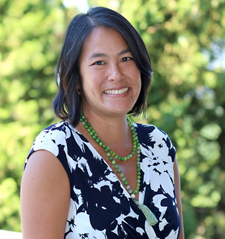
Katy Ho, Ph.D.
Aspen Fellow Cohort 2
Vice President of Academic Affairs, Portland Community College
Portland, OR
"My mentor, Dr. William Serrata, provided me with a wealth of knowledge, tips, and advice based on his own journey of becoming a community college president. What I find most helpful is to reflect on the core theme that ran through all his advice: stay true to yourself. A community college president balances many stakeholder needs, political dynamics and is challenged with maintaining a sense of healthy balance between work and life. In order to wade through the noise and do what is best for students and the community one serves, a president must truly know themselves, their own values, and how much they are willing to push themselves out of their comfort zones. I admire the many stories Dr. Serrata shared with me where his decisions and ability to address complex issues have been grounded in his own understanding of who he is, where he came from and how this has informed his life's work."
What was your favorite learning experience or moment in the fellowship?
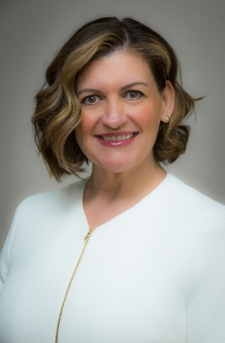
Paula Pando, Ed.D
Aspen Fellow Cohort 2
Senior Vice President for Student and Educational Services, Hudson County Community College
Jersey City, NJ
"Reflecting on the many meaningful experiences in the fellowship, it is nearly impossible to select just one favorite. The opportunity to learn from and with thought leaders and talented practitioners from across the country has been extraordinary. One set of experiences that stands out are the fireside chats. In an intimate setting, fellows had the opportunity to hear from presidents who have done truly remarkable work in service of student success and completion. Beginning with an interview thoughtfully facilitated by Josh Wyner, Executive Director of the College Excellence Program at the Aspen Institute, followed by Q&A with the fellows, these inspiring presidents generously shared how they were able to move their institutions from the status-quo to achieving significant and sustained improvements in overall student success while also narrowing achievement gaps among underrepresented groups. The candor with which they spoke about the challenges of leading systemic and cultural change in service of improving lives was both refreshing and eye-opening. I was thrilled to get the opportunity to facilitate the last fireside chat with a professional hero of mine, Dr. Karen Stout, president of Achieving the Dream."
The fellowship requires you to develop a presidential strategy as a capstone project. Can you tell us about the project you developed and how your mentor has helped you work through it?
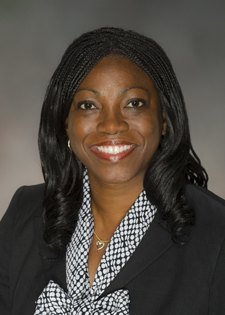
Falecia D. Williams, Ed.D.
Aspen Fellow Cohort 2
President, West and Downtown Campuses at Valencia College
Orlando, FL
"The capstone project I have developed is the case for fostering equity in student success outcomes by opening a 21st-century joint campus for the University of Central Florida (UCF) and Valencia College in Downtown Orlando (Valencia). The new campus has the expressed intent to improve the quality of life for the people who live and work in the community while powering Central Florida's educational and economic growth. By design, students will have increased access to short-term workforce training and two-year degrees from Valencia and advanced degrees from UCF in high-demand fields that integrate with industry and place students within walking distance of internships, apprenticeships, and jobs. This bold vision includes the implementation of an engagement framework focused on the tenets of flourishing 21st-century cities' health and wellness, safety and justice, urban education, family-sustaining employment, and housing. The campus will transform lives and the community for decades to come.
My mentor, Dr. Karen Stout, President and CEO, Achieving the Dream, Inc., utilized an inquiry-based approach to help me ground this strategy within the body of student success data. She asked provocative, open-ended questions that deepened my reflection on the data, their meaning, and relevancy to our institutional mission. The clarity I derived from her counsel led me to strengthen my problem statement and authentically situate the narrative of the project within issues of equity in access, student success and impact. The value of her mentoring is the pursuit of betterment. My project was tangibly improved and my professional approach to cultivating an institutional strategy has been markedly enhanced."
